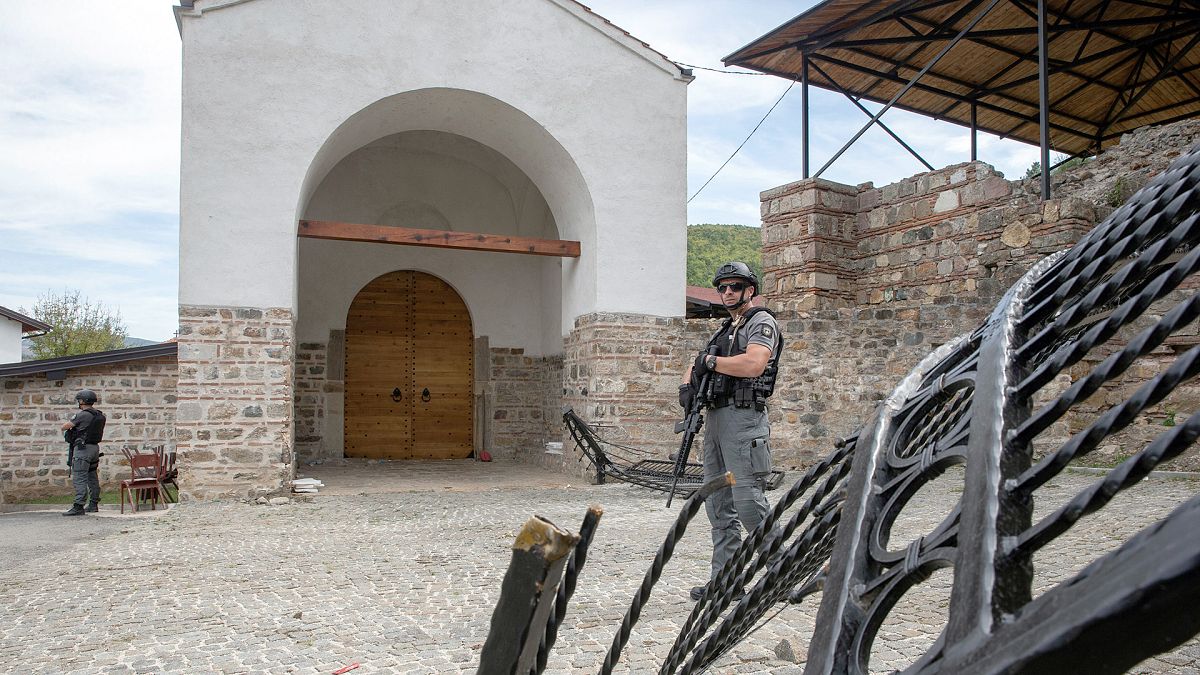In September of last year, a violent incident occurred in Kosovo involving armed Serb gunmen attacking Kosovo police and barricading themselves in an Orthodox monastery in Banjska. The attackers killed a Kosovar Albanian police officer, leading to a daylong gun battle that resulted in three attackers being killed. Kosovo Prime Minister Albin Kurti accused Belgrade of being involved in the incident, claiming it was part of a larger plan to annex part of Kosovo. He called on the international community to pressure Belgrade to hand over the rest of the gunmen who fled back into Serbia following the standoff. Belgrade denied the allegations, stating that the gunmen acted independently. Among those charged in absentia is Milan Radoičić, a politician and businessman with ties to Serbia’s ruling party. He denied the charges but admitted to being linked to the group involved in the gunfight.
The defendants, under Radoičić’s command, allegedly attempted to assist in breaking away the Serb-majority municipalities in Kosovo’s northern part to join Serbia. A lawyer representing the family of the slain Kosovar officer expressed confidence in the conviction of the three defendants based on what he called “irrefutable evidence.” Both the EU and US officials have called on Belgrade to cooperate in bringing the perpetrators to justice and implement agreements made in previous years to maintain peace in the region. The trial, held at Pristina’s District Court under tight security, includes charges of violation of constitutional and legal order, terror activities, funding terrorism, and money laundering. If convicted, the gunmen could face a maximum sentence of life in prison.
The incident in Kosovo last year sparked a significant conflict between Serb gunmen and Kosovo police, resulting in several deaths. With accusations of Belgrade’s involvement in the attacks, tensions between Kosovo and Serbia have escalated. Milan Radoičić, a prominent figure in Serbia with political and business ties, is among those charged in absentia for his alleged role in the incident. Despite his denial of the charges, there is evidence linking him to the offenders. The prosecutor has claimed that the gunmen, under Radoičić’s leadership, aimed to aid in separating the Serb-majority Kosovo municipalities to join Serbia.
The families of the victims are seeking justice in the trial against the three defendants, hopeful that the evidence presented will lead to convictions. Both the EU and US have urged Belgrade to cooperate in holding the perpetrators accountable and implementing peace agreements aimed at reducing tensions between Kosovo and Serbia. The trial, which includes charges of terrorism and money laundering, is being closely monitored by international observers to ensure a fair and just outcome. If the gunmen are found guilty, they could face life imprisonment for their actions in the violent standoff last year in Kosovo.
The involvement of armed Serb gunmen in the conflict in Kosovo has raised concerns about the stability of the region and the potential for further violence. Prime Minister Albin Kurti’s accusations against Belgrade for its alleged role in the attacks have strained relations between Kosovo and Serbia. Milan Radoičić’s connections to Serbia’s ruling party have further complicated the situation, with charges against him for his part in the violent incident. The families of the victims are seeking closure and justice through the trial of the three defendants, hopeful that they will be convicted based on the evidence presented.
Both the EU and US have emphasized the importance of cooperation between Kosovo and Serbia in addressing the conflict and ensuring peace in the region. The trial’s outcome will be crucial in determining the accountability of the gunmen and providing closure to those affected by the violent incident. As tensions continue to simmer between Kosovo and Serbia, international pressure on both parties to uphold peace agreements and work towards reconciliation remains essential. The trial in Pristina’s District Court serves as a significant step towards justice and stability in the region, with potential implications for future relations between Kosovo and Serbia.










